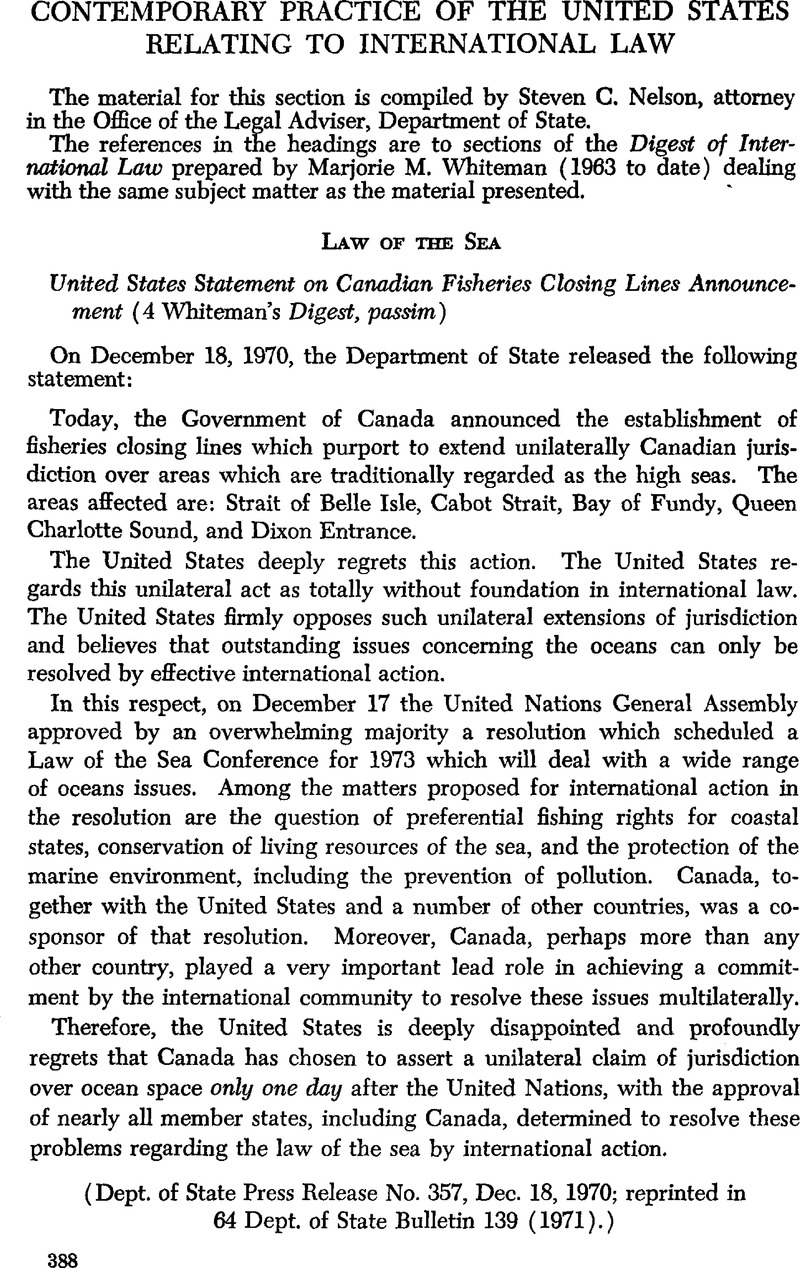No CrossRef data available.
Article contents
Contemporary Practice of the United States Relating to International Law
Published online by Cambridge University Press: 28 March 2017
Abstract

- Type
- Other
- Information
- Copyright
- Copyright © American Society of International Law 1971
References
1 The District Court determined that Banco Nacional and the Government of Cuba are one and the same for purposes of this litigation.
2 “(2) Notwithstanding any other provision of law, no court in the United States shall decline on the ground of the federal act of state doctrine to make a determination on the merits giving effect to the principles of international law in a case in which a claim of title or other right to property is asserted by any party including a foreign state (or a party claiming through such state) based upon (or traced through) a confiscation or other taking after January 1, 1959, by an act of that state in violation of the principles of international law, including the principles of compensation and the other standards set out in this subsection: Provided, That this subparagraph shall not be applicable (1) in any case in which an act of a foreign state is not contrary to international law or with respect to a claim of title or other right to property acquired pursuant to an irrevocable letter of credit of not more than 180 days duration issued in good faith prior to the time of the confiscation or other taking, or (2) in any case with respect to which the President determines that application of the act of state doctrine is required in that particular case by the foreign policy interests of the United States and a suggestion to this effect is filed on his behalf in that case with the court.” (Foreign Assistance Act of 1965, Sec. 620(e)(2), 22 U.S.C. §2370 (e)(2).)
3 We regret that our views could not have been brought to the attention of the lower courts. Unfortunately, it was only after the not-yet-published opinion of the Second Circuit Court of Appeals was handed down that the question of the appropriateness of State Department action arose, since it did not become clear until that time that the Sabbatino Amendment would be considered inapplicable. No formal request for a statement by the Department was made in this case until October 14, 1970, one day after the petition for writ of certiorari was filed.
1 P. 45, col. 1.
2 U.N. Doc. A/L.605 (1970).




